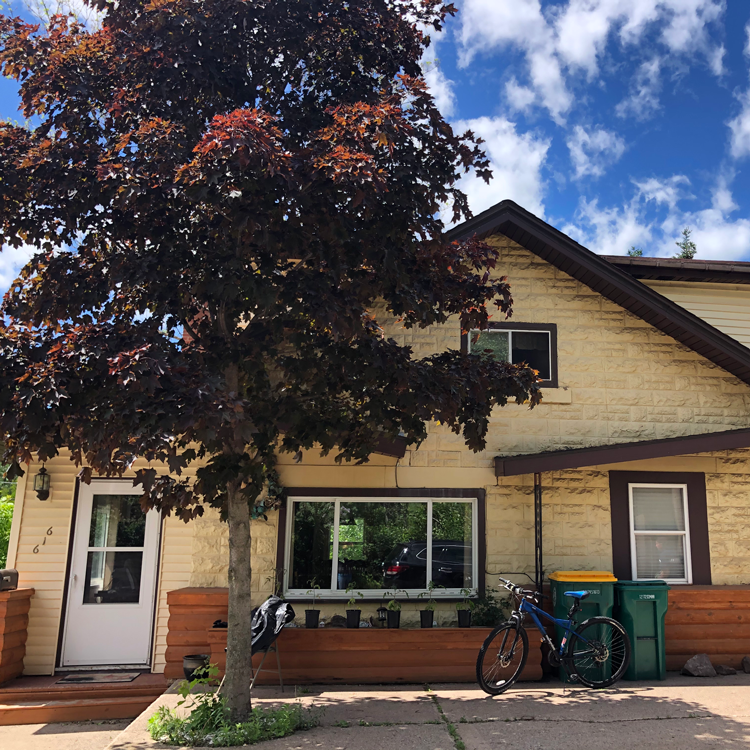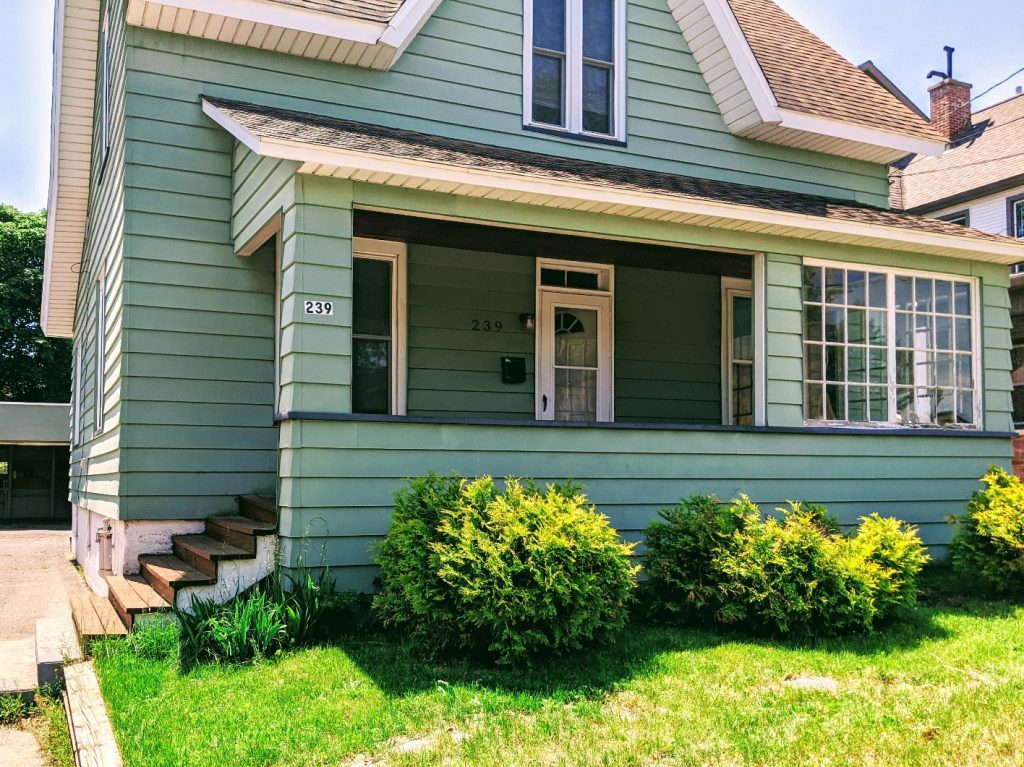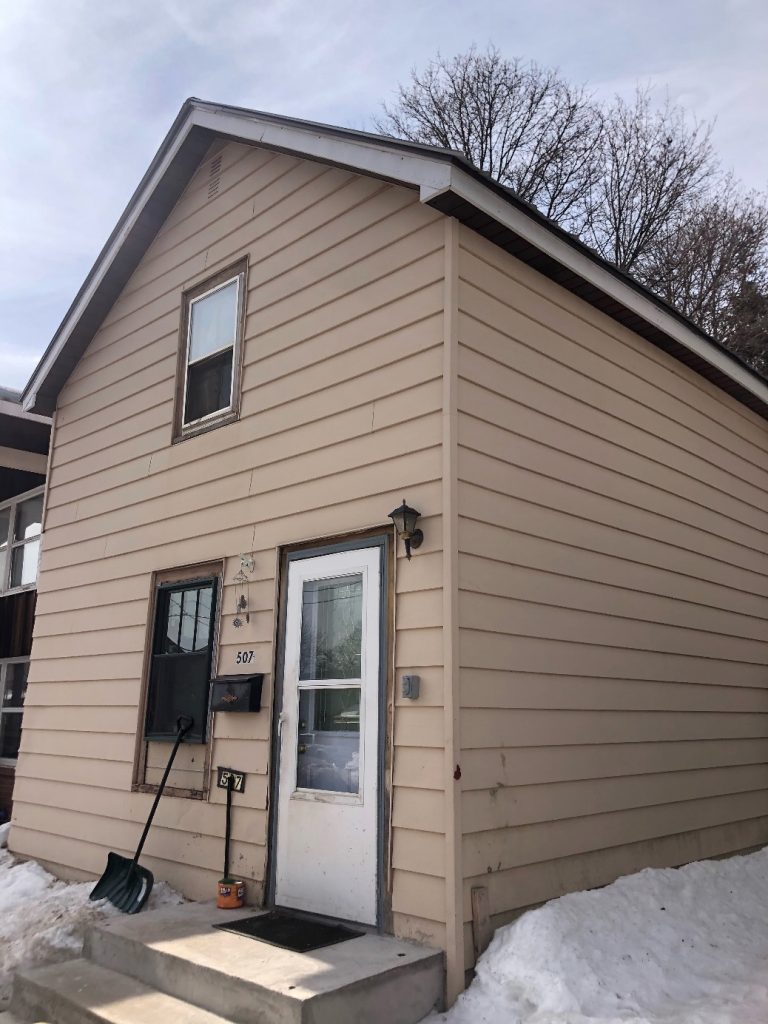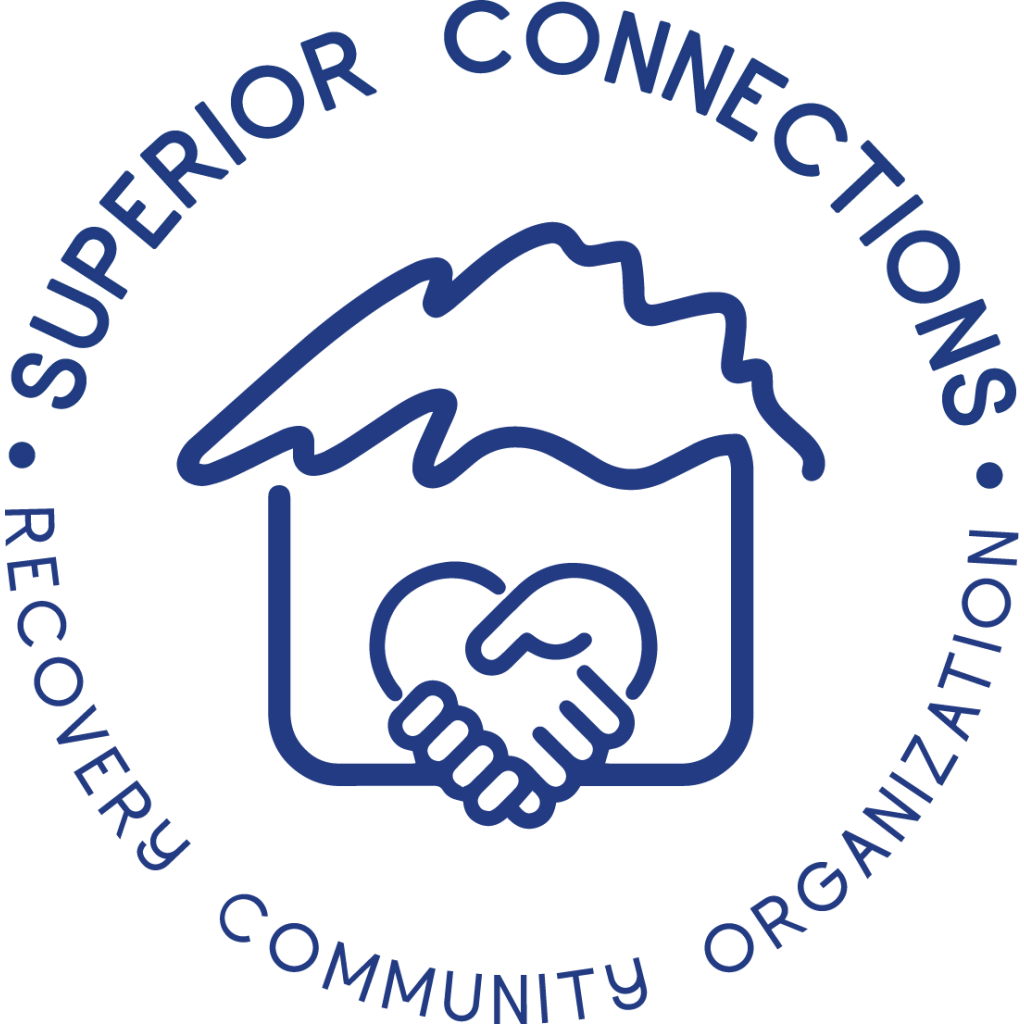Services
Our objective through these services is to create a Recovery Oriented System of Care in our community. This is to ensure that, no matter where a person is at in their recovery journey, support is available. We have found that when you combine multiple recovery supports and envelope them, it is harder for them to slip through the cracks therefore making forward progress towards self-fulfillment a possibility for those searching for it.
DIRECT SERVICES PROGRAM
Our staff are cross-trained as both Peer Recovery Coaches and Community Health Workers. We pride ourselves on always meeting participants where they are (literally and figuratively). They connect participants to services while providing a consistent presence. For some of those we serve, that means their most basic needs such as food, shelter/housing, clothing, income and community. These are in and of themselves part of gaining a strong recovery capital and lay the foundation for change talk. For those who are already interested in change, our staff make it as easy as possible to engage with recovery, whatever way that looks for each individual.
COMMUNITY HEALTH WORKERS
Our Community Health Workers work with program participants to achieve goals related to social determinants of health. This can include connecting to health care, locating housing, establishing a source of income, obtaining identification, arranging transportation, connecting to benefits, learning healthy habits, and much more
RECOVERY HOUSING
We currently operate two recovery residences in Marquette and Ishpeming for people who identify as male. Recovery residences provide a safe, and healthy alcohol-free and illicit drug-freeliving environment that promotes recovery from alcohol and other drug use and associated problems.
Please use our online admission application form if you would like to be considered for our Recovery Housing program:
TRANSITIONAL HOUSING
As a first phase of our work, Superior Housing Solutions (SHS) was able to acquire a boarding house with hopes of converting the space from a boarding house to a Recovery Residence. While trying to find new housing for the men currently living at the boarding house, we became intimately familiar with the barriers to housing that exist in the area. Because of those barriers, and a complete lack of appropriate housing options, we opted to operate this location as Transitional Housing.
HOUSING OPTIONS

Fisher Street
Transitional Housing

Superior Recovery House

Ishpeming House
MORE ABOUT THE SUPERIOR RECOVERY HOUSE PROGRAM
Entry into the house most often will occur prior to release, as potential candidates for Superior Recovery House are first identified through one of our referral agencies. Resident referrals are also received from Probation and Parole Officers, Re-entry Coordinators, and Concerned Relatives. Applicants must complete a screening process, which includes an interview, orientation, and background check. In order to be accepted, an application must have some connection with the Upper Peninsula community. Participants must sign a contract and adhere to the rules regarding drugs, alcohol, or weapons of any kind for the duration of their stay. There is no set length of stay for full-time program participants, but the recommendation is 90 days and the average length of stay is 120 days. There will be a working kitchen, where program participants take turns preparing meals, and a computer system for program participants to search for employment. Several businesses (i.e. GoodWill) in the area actively seek out our program participants for employment so program participants are rarely unemployed for more than a few days. Program participants must attend support group sessions as well as a weekly in-house group session. Out-patient counseling is also strongly encouraged. Part-time program participants check-in regularly and also attend the support group sessions and/or individual counseling. The population tends to be younger, aged 18-35. Superior Connections RCO supports all pathways to recovery.
PROGRAM GUIDELINES
Abstain from drug and alcohol use, respect all program participants and staff including their rights, views and property. Maintain an environment that is free from harassment, violence, and abuse. Participate in the structure of program including but not limited to: group meetings, 12 step meetings, personal progress reporting, house meetings, house up-keep, service work, actively work on a “recovery plan”, submit to random urinalysis and PBT’s, secure employment or education within 45 days, be physically, mentally, and emotionally capable of self-care, willingly abide by Program Agreement and Operating Guidelines.
TEAM BUILDING PROJECTS
Program participants are expected to participate in semi-annual community outreach group projects. These projects are intended to build camaraderie among members and build trust in the community. Team projects can include but are not limited to: shoveling roofs of the elderly and landscaping beautification projects in the city. The Team Building Project can also include volunteering at area events to benefit or address a community need.
PROGRAM EVALUATION
Program outcomes are part of Superior Connections RCO’s Outcome Measurement System. Outcomes include Progress, Goal Progression, Satisfaction, and Efficiency. Data will be collected from internal sources, as well as from program participants, and local law enforcement agencies. The data is analyzed in order to determine progress toward outcomes. Superior Connections RCO reports annual results of former program participants with numbers admitted into the program, number who remain in recovery, and number currently employed and sustaining themselves and/or their families in Michigan or Wisconsin. Superior Connections RCO also reports the number of former program participants who have re-entered incarceration or another in-patient treatment program after leaving the facility.
DISCHARGE FROM SERVICES
Discharge from the program may occur when:
- The Program participant chooses to leave services.
- Services are no longer appropriate, either because the resident has received full benefit or because the needs of the resident have changed. This also may be determined by the Advisory Board and/or Executive Director.
- The Program participant no longer meets admission criteria.
- The Program participant presented conduct that is deemed dangerous to self or others and is not manageable through behavior intervention techniques and/or environmental adjustments.
- A survey is to be completed at discharge with follow-up point of contact information included on the discharge form in order to allow the house Program Supervisor an opportunity to check on the status of the former resident. (wrap-around care)
MANAGEMENT OF SERVICES
Superior Connections RCO will provide oversight and direction for Superior Recovery House full-time program supervisor and administrative support. The full time program supervisor is experienced in substance dependence recovery and all pathways to recovery. Superior Recovery House will be accredited through the National Alliance for Recovery Residences (NARR) standard. The full-time program supervisor will be trained in recovery facility management through the NARR accreditation process. Program supervisors recieve their peer recovery coaching certificate through both The State of Michigan and the Connecticut Community for Addiction Recovery (CCAR). Program supervisors will also receive their Community Health Workers certificates through The State of Michigan.
NARR / NATIONAL ALLIANCE FOR RECOVERY RESIDENCES
The National Alliance for Recovery Residences (NARR) is a 501-c3 nonprofit organization dedicated to expanding the availability of well-operated, ethical, and supportive recovery housing. They developed the most widely referenced national standard for the operation of recovery residences. They work with and support 30 state affiliate organizations. NARR and these organizations collectively support over 25,000 persons in addiction recovery who are living in over 2,500 certified recovery residences throughout the United States.
MARR / MICHIGAN ALLIANCE FOR RECOVERY RESIDENCES
The Michigan Association of Recovery Residences, Inc. (MARR) is the Michigan statewide affiliate of the National Alliance for Recovery Residences, Inc. (NARR).
